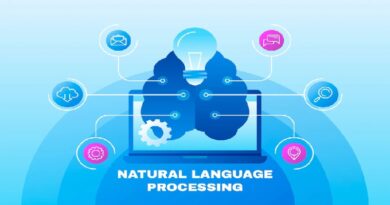Why most organizations struggle to protect their critical data
Today, data intelligence platform provider BigID published “The State of Data Security in 2022,” a report detailing the challenges modern organizations face when protecting their data assets.
The study revealed many key findings about the concerns of enterprises, one of the most significant was that more than 90% of organizations struggle with enforcing security policies around sensitive or critical data.
Respondents reported a number of reasons for anxiety over dark data and unstructured data, with 84% of organizations reporting they are extremely concerned about dark data (data that organizations are unaware of) and eight out of 10 organizations considering unstructured data the hardest to manage and secure.
Above all, the report highlights that most organizations are in need of new data classification and discovery solutions to increase visibility over dark and unstructured data, so they can implement policies to protect it and prevent it from exposure to malicious threat actors.
The challenge: Protecting data you can’t see
As the volume of data created by modern enterprises increases, many organizations are unaware of all the data they generate. This unknown data, commonly referred to as dark data, introduces new security challenges, because enterprises can’t secure assets if they don’t know they exist.
The risk landscape is evolving: data breaches aren’t an if, but a when; data privacy and protection regulations are becoming more prevalent; and data is simply growing [in] an exponential way. Data is driving business and when an organization doesn’t know what they have, they’re unable to protect and manage it,” CEO of BigID, Dimitri Sirota
Typically, much of this dark data is unstructured data, containing a mixture of confidential and critical data like intellectual property, business, financial data, customer IDs and more.
Sirota argues that security of critical data is challenging not only because of data sprawl, but “‘in order to enforce security policies they need to be able to know their critical data in the first place that means being able to scan, classify and inventory sensitive data of all types.”
Inevitably, this means they need an “accurate data inventory as a foundation” that they can use to discover exposed data, catalog it and then take action to secure it.
BigID’s data intelligence aims to enable organizations to address this challenge by automatically discover structured and unstructured data throughout their environment, using NLP, deep learning and pattern classifiers, so they can start securing it against external threat actors.
A look at the data privacy market
The report comes as the data privacy software market is in a state of growth, with the global data privacy software market valued at $1.68 billion in 2021 and anticipated to reach a value of $25.85 billion by 2029, as more organizations look to software solutions to increase visibility over critical data assets.
Recently, BigID has become one of the most significant players in the market, announcing a $70 million Series D funding round in 2020 and months later announcing a $30 million extension. It’s since reached a valuation of $1.25 billion.
The provider is competing against a number of competitors including OneTrust, which offers a privacy management platform with automated data discovery and classification that ties datasets to identities.
OneTrust is one of BigID’s main competitors in the market and last year announced it had raised $920 million in total funding and achieved a $5.3 billion valuation.
Another competitor is Collibra, which offers a cloud-based data intelligence platform that enables users to create a data catalog and automate data governance workflows. Last year Collibra, also grew significantly, reaching a valuation of $5.25 billion following a $250 million Series G funding round.
BigID’s strategy to differentiate itself centers around its data scanning capabilities. The provider’s platform not only offers the ability to automatically discover structured, semi-structured and unstructured data, but can also generate ML driven insights on the data itself, with NLP driven classification so users can see what data there is, where it is located and who it belongs to.




